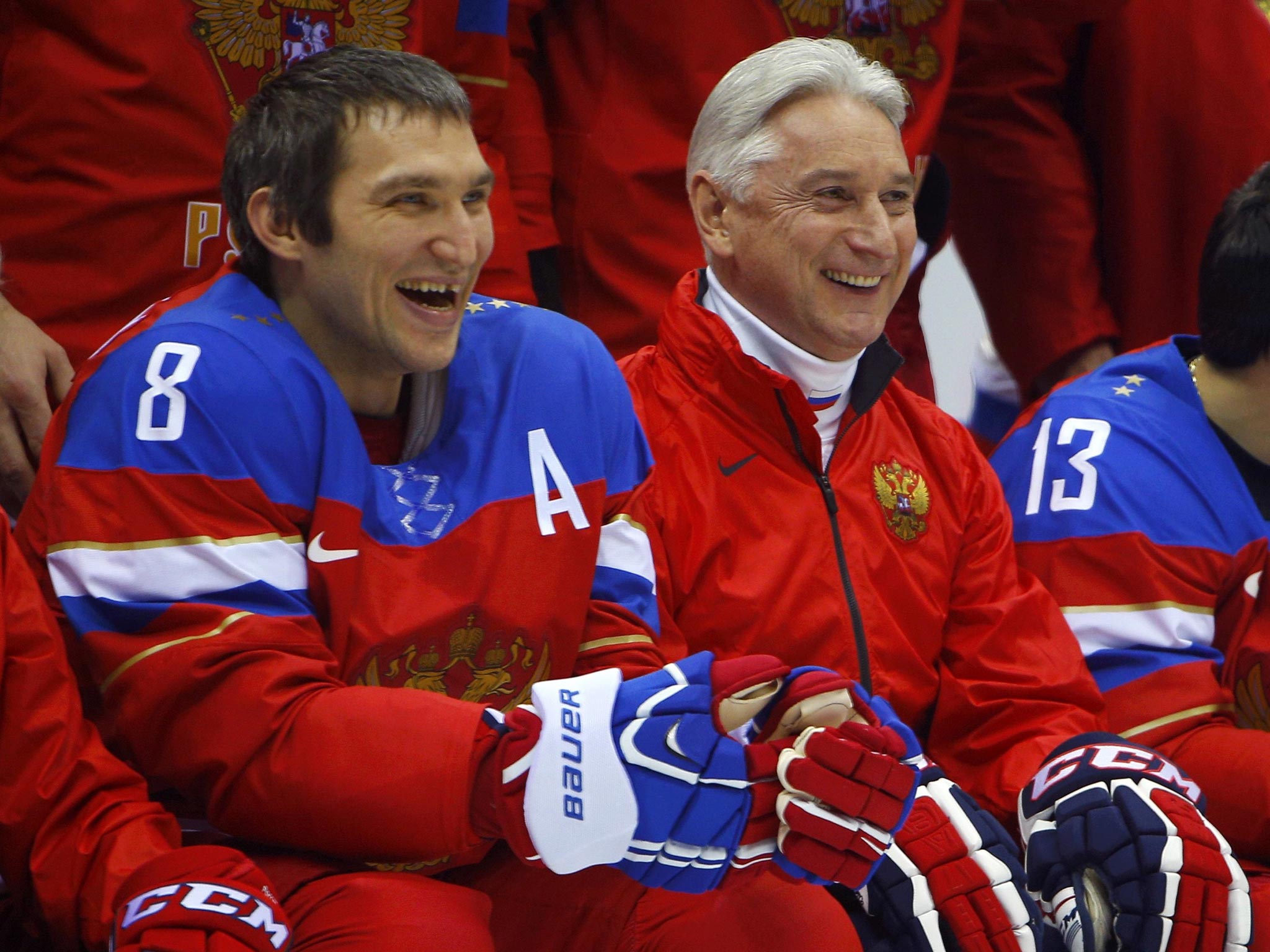Winter Olympics 2014: Russia's ice hockey poster boy fails to get President Putin smiling
No Russian player has spent longer on the ice than Alexander Ovechkin but he has been unable to guide his country directly into the quarter-finals

Your support helps us to tell the story
From reproductive rights to climate change to Big Tech, The Independent is on the ground when the story is developing. Whether it's investigating the financials of Elon Musk's pro-Trump PAC or producing our latest documentary, 'The A Word', which shines a light on the American women fighting for reproductive rights, we know how important it is to parse out the facts from the messaging.
At such a critical moment in US history, we need reporters on the ground. Your donation allows us to keep sending journalists to speak to both sides of the story.
The Independent is trusted by Americans across the entire political spectrum. And unlike many other quality news outlets, we choose not to lock Americans out of our reporting and analysis with paywalls. We believe quality journalism should be available to everyone, paid for by those who can afford it.
Your support makes all the difference.For four minutes the script followed the narrative penned somewhere deep within the Kremlin. Game one, period one of Russia's opening ice hockey pool match against Slovenia in front of a full house in the Bolshoy, the glittering dome that rises in the middle of the Olympic Park, and Alexander Ovechkin had scored one and set up one. "Alexander the Great" was off to conquer new lands, to bring modern Russia its first Olympic gold in the sport that obsesses a nation.
Around Sochi the red shirt with Ovechkin stencilled across its back is worn by men, women and children. His gap-toothed smile grins down from billboards. Think David Beckham at his peak, multiply it by a population of 143 million and add extensive interest from the United States as well. Ovechkin, born in Moscow, lives in Washington DC where he captains the Capitals. He is in the sixth year of a 13-year contract worth $124m (£74m). At the time it was signed it was a record deal in the NHL. This man is a big deal here.
Which is why what has happened, or rather not happened, since those first four minutes has become a cause for national concern. No Russian player has spent longer on the ice than Ovechkin but he has been unable to guide his side directly into the quarter-finals. There has not been a goal or an assist since game one. Defeat in a shoot-out to the United States, in which Ovechkin was a marginal figure, was followed by a 1-0 victory over Slovakia only via a shoot-out. The US beat Slovakia 7-1. With Russia finishing two points shy of the US in Group A and lying fifth overall, they now face Norway in a play-off to earn a quarter-final place.
"Of course we'd want to play one match less, but this way we will stay in good form," said Ovechkin. The problem with that line of defence is that he and his team are not in good form in the first place.
In neither shoot-out has the Russia coach, Zinetula Bilyaletdinov, entrusted his main man to take on the responsibility. Bilyaletdinov is a survivor of the Soviet Union's defeat to the US in the 1980 final, the infamous or famous, depending on your side of the Iron Curtain, "Miracle on Ice".A US win here would be no miracle, neither would a Russian one. But it would be an utterly memorable one for the host nation.
The Soviets won every gold from 1956, their debut Games, to 1992 apart from two US interruptions (the Americans also won on home soil in 1960). Since the break-up of the Soviet Union there has been a gradual decline; silver in 1998, bronze in 2002, fourth in 2006 and sixth in Vancouver.
Ovechkin played in the last two Games and despite his stellar standing, his trophy cabinet is bare of the two honours that matter most. There are two World Championship medals but no Stanley Cup medals or Olympic medals.
His mother, Tatyana, has two of her own – won in basketball in 1976 and 1980. According to Tatyana, her son's future was determined from the age of two when he took hold of a stick and helmet in a Moscow toy shop and refused to let go.
Born five years after Russian last hosted the OIympics, Ovechkin has become almost as closely associated with these Games as Vladimir Putin. He was the first to carry the Olympic torch. The president and a nation expects a happy ending.
There is still scope for one. Russia have never lost to Norway and, should they make the quarters, they will face Finland, then probably Sweden in the last four. That would leave a final against the US or Canada, the defending champions. To strike gold at the end of it all though needs the "Great Eight", to use his other nickname, to add up to the sum of his parts.
Join our commenting forum
Join thought-provoking conversations, follow other Independent readers and see their replies
Comments